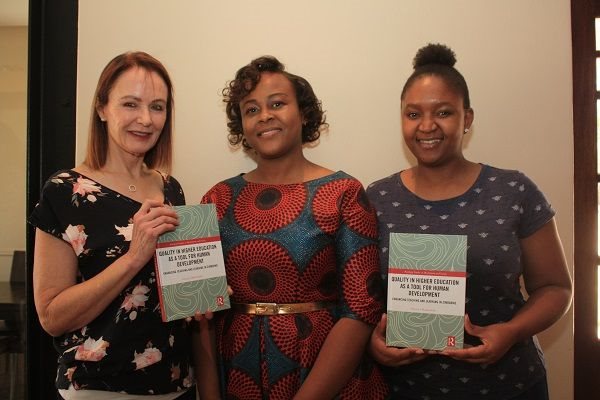
Top stories






More news


ESG & Sustainability
#AGES2026: How to back Africa's next-gen green and blue entrepreneurs
















The book is a product of her doctoral research and was launched by the office of the SARChI Chair in Higher Education and Human Development, where Dr Mukwambo is a full-time researcher and was introduced at an event held at the Bloemfontein campus of the University of the Free State (UFS) on 21 October 2019.
Dr Mukwambo was joined in conversation by Prof Brian Raftopoulos, a Mellon Senior Research Mentor in the Centre for Humanities Research at University of the Western Cape.
Both scholars testified to the concept of critical thinking, alluding to the depressing state of education in Zimbabwe due to limitations posed by a non-expanding economy and a repressive political space.
Prof Raftopoulos told the audience the idea of critical thinking has a long genealogy in radical thought which has deepened its roots in modern-day society.
“What you have seen through the introduction of STEM (Science, Technology, Engineering, and Mathematics), is the increasing idea of functionalising education for a work economy. More often than not, you will hear the state saying it is up to school-leavers to create their own jobs,” said Prof Raftopoulos. According to Dr Mukwambo, part of the challenge is that “critical thinking is omitted on purpose and therefore universities lack a moral compass to work from”.
“While the broader economy might be constraining, there are opportunities to develop critical thinking in the classroom, although it might not be uniform across all universities,” said Dr Mukwambo.
Equipping graduates with critical-thinking skills contributes to a range of benefits, such as improved wellbeing, economic outcomes, political engagement, and human capital formation. Quality in teaching and learning is therefore indeed a step in the right direction, towards social justice.